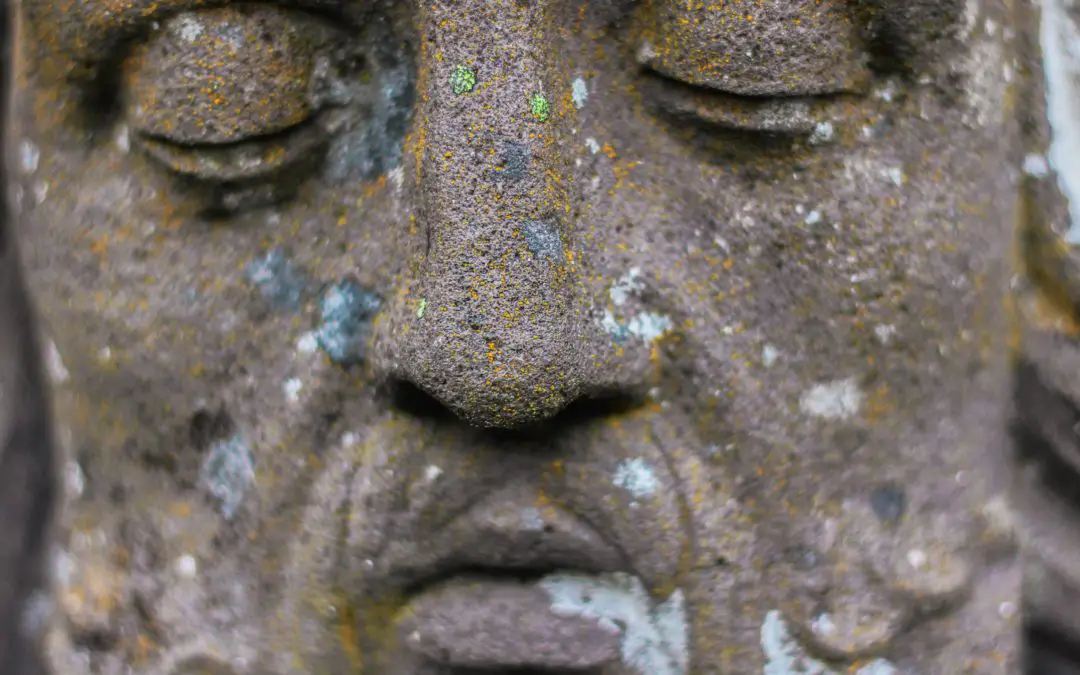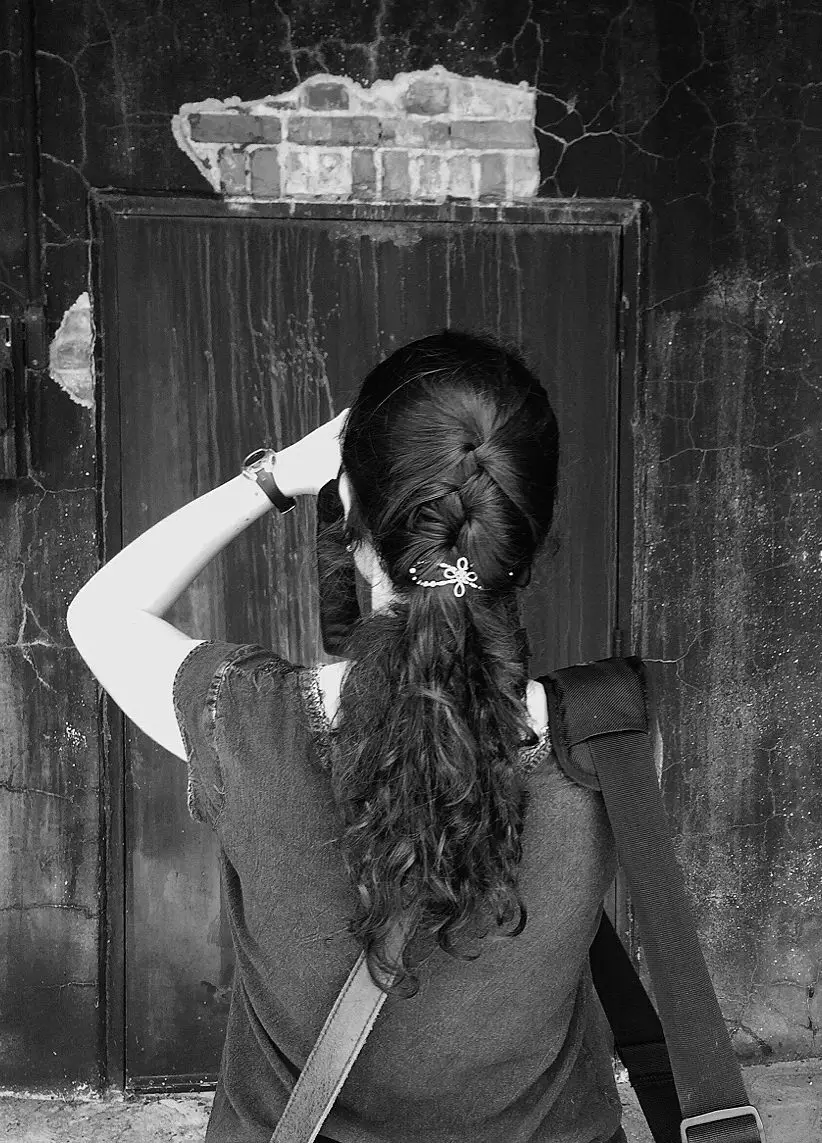L.E. Williams
The first time the sculptor watches a statue break, he can’t stop looking at it. It’s only just a copy, a terrible, half-finished copy at that, but someone had been careless enough to knock it over and now the pieces of it crunch under every footstep. His teeth ache at the sound and his chest constricts with something closer to grief than anger. He stands in numb silence as something that could have been beautiful is swept up and thrown away, forever incomplete, ruined and forgotten, and he has to bite his clenched fist to keep from sobbing.
When he is older, only a little older, he hears stories of those who wreak that same kind of destruction on purpose. Pillagers destroy what they cannot carry away, his teacher says, curling the words around in his mouth like he wants to spit them out. Some people cannot look at art without measuring its worth in gold. The sculptor glances down at the stone on his workbench and grips his chisel tighter to stop his hands from trembling. Who could use the same hands that are capable of creation and joy and light take delight in the destruction of it? This statue taking shape is only a copy, again, but this time it is his. He had freed it from the stone with his own hands, it had found its shape and life under his direction and he will take a chisel to the eye of anyone who tries to hurt it. He remembers the pieces scattered on the workshop floor less than a half a handful of years ago. Who would destroy beauty on purpose?
Years slip through the streets of his city, and he starts to understand. Art is wealth, and wealth that cannot be carried off and sold is destroyed merely to spite the men who own it. He is taking commissions now, and the gold in his pocket is a burning reminder that some beauty is valued more than others.
Soon he is twenty-six and the faint whispers of his talent erupt into shouts. Challengers begin to discount what he has done, trying to prove that there is some limit to his greatness. A way comes soon enough, and they push a misshapen, impossible block of marble into his workshop and wait for him to fail. Make a warrior, they whisper. Surely the great sculptor can make a warrior worthy of our city.
The sculptor runs his fingers over the marble, sensing all the imperfections inside. The stone has lain quiet for nearly all his lifetime, no one willing to touch it after its first shaping had failed. But deep inside he feels something else, something waiting and true and beautiful. The sculptor glances at the men watching him, waiting for him to join the list of those who had pushed this stone aside, then takes his chisel and locks himself in his workshop for two years.
There are already so many warriors in this city, he thinks as he slowly carves the marble away, all of them symbols of triumph, of victory, of glory. This warrior will be different. He will not relax in the aftermath of his fight, but stand waiting for the battle. Perhaps that is what this city needs: not just another symbol of its majesty, but a reminder of what it is to defend what one loves.
At last he finishes and is lauded almost a hero. He basks in the glory for a while, as he always does, then moves on to other statues, other commissions. He still visits his warrior though, pausing each day as he crosses the square to look up and smile at his work.
The quiet doesn’t last long, though, and war comes, as it always does. At first there seems nothing new about it: the fire, destruction, and suffering are just far away enough that the sculptor can bury himself in his work and pretend it isn’t happening.
But this time is different. The fighting inches into the city, drifting closer and closer to the sculptor and, worse, his work. After the third night of dreaming about seventeen feet of marble shattering across cobblestones he decides it is time to do something about it.
He finds the city guards and begs them to set up a watch. Soldiers destroy what they cannot carry away, he says, pulling the words from some half-remembered conversation. Please, you have to keep it safe.
They laugh in his face, of course. Why should we care about a statue? They say. We have wives and children to protect. Why don’t you guard it if you’re so worried about it?
Glass shatters somewhere far too close and they leave him alone in the smoke-clogged street. He checks on the statue once, then again, and then again. As soon as he decides he will not go back a fourth time he finds himself sitting in front of it, watching flames dance over distant fields.
He wonders what marble looks like when it burns.
Shutting his eyes against the image, he rests his head against the pedestal. In his mind he can trace out every inch of the statue, from the uneven legs to the veins on the hands to eyes that are waiting and searching, searching…
Suddenly he remembers the first statue he saw in pieces, and the grief he could not understand then floods through his chest like a soot-soaked river.
And in that moment neither the gold nor the glory of his trade matter, only the beauty of his statue and the loss he will feel when it is gone. It is already gone, in a way. He gave it away when he created it, gave it to his city as something to protect it. And even the thousand imperfections in the marble only served to give it strength.
Some of the ache washes away and leaves a deep tiredness in its place. He should go home, he thinks, go finish the commission he’s already delayed twice. Instead he pillows his cloak under his head and curls up in his statue’s shadow. If someone tried to hurt him...well, he still has his chisel, after all. He smiles and lets his eyes drift shut.
There will always be those who seek nothing but destruction and bitterness. But the sculptor at least will keep watch, protecting the beauty he sees in the world.
L.E. Williams
L.E. Williams delights in confusing her friends and professors by going by her middle name (Elizabeth). When she isn’t writing, she enjoys cooking, photography, violin, and playing copious amounts of Animal Crossing with her husband Taylor (who also serves as her biggest supporter and a fantastic filmmaker). She is currently pursuing a B.A. English at Milligan University, and hopes one day to teach her cat to read. You can visit her website at www.lewilliamsauthor.com to read dramatic accounts of her everyday adventurings.
Get Your Free Guide
Sign up to get your free guide on building a writing habit!



Very beautifully written! And I love the meaning behind it.
I was wondering, have you ever written poetry? Because your writing style is so poetic.
Thank you Kathleen! I’m glad you enjoyed my story.
I do dabble in poetry, though less frequently than I would like. Thank you for the compliment!
So glad to see another short story!
And this one did not disappoint! The words flow so nicely, and the theme isn’t one I read of often.
I LOVE this story.
Really cool! It captures the protagonist perfectly.